
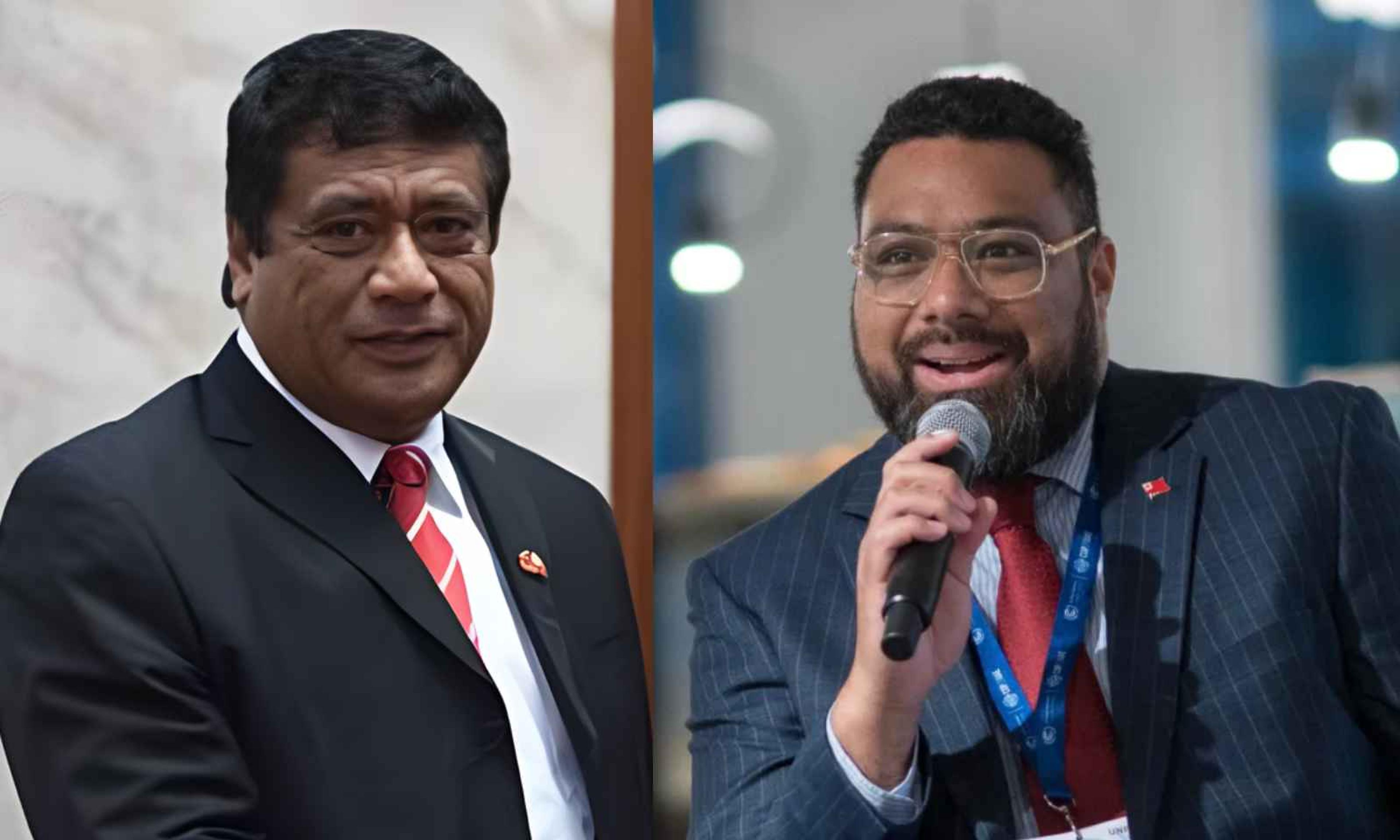
Lord Tuivakano (left) and Lord Fakafanua (right).
Photo/Supplied
Shock noble bids shake up Tonga’s latest race for Prime Minister
Academic Dr Malakai Kolomatangi says the move upends expectations shaped since the 2010 democratic reforms.




A.R.T sets new Pacific music pace with ‘First Thursday’ releases
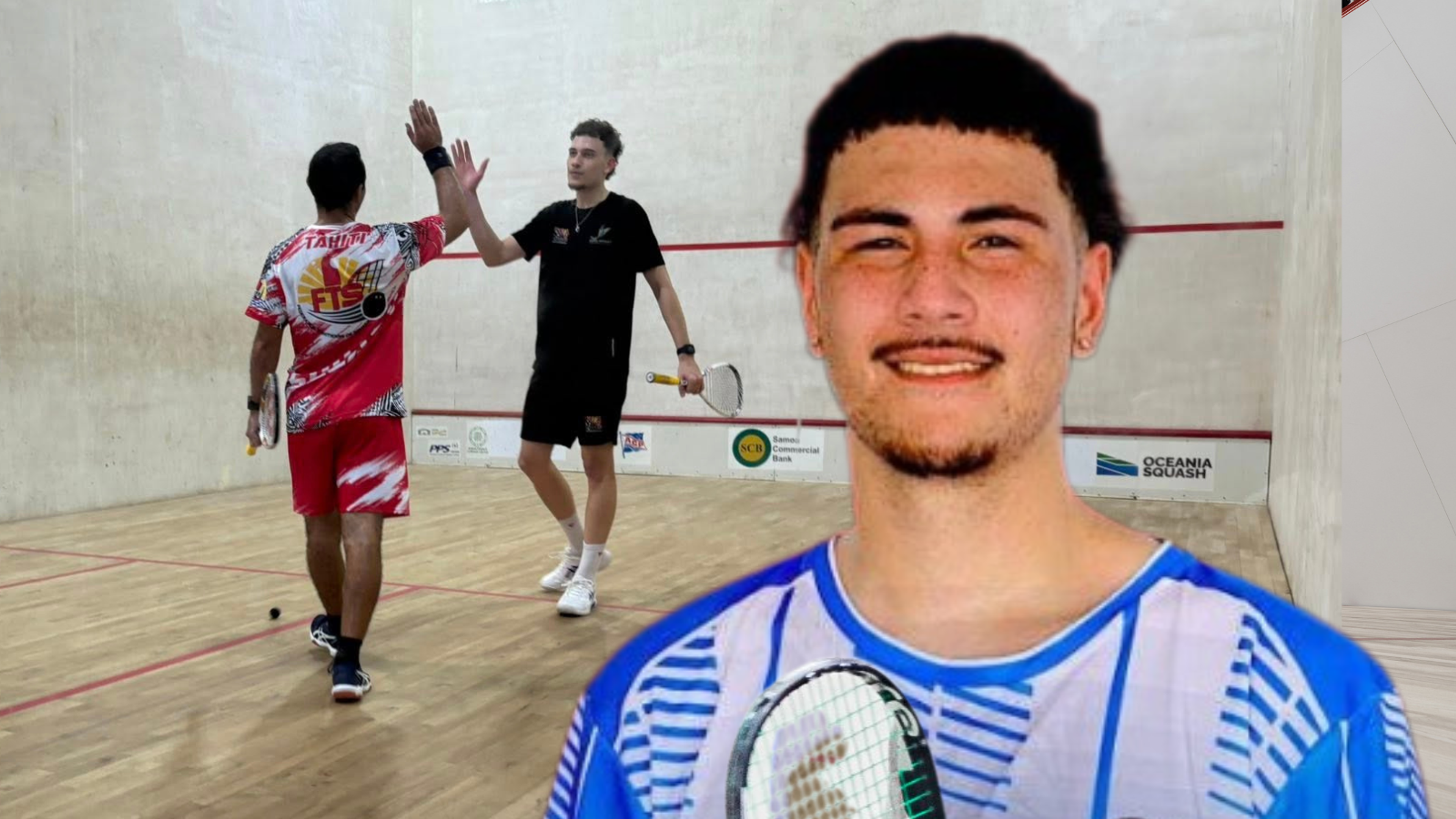


Moana Pasifika end Lautoka curse to win 'Battle of the Pacific'


A.R.T sets new Pacific music pace with ‘First Thursday’ releases

Just days before Tonga votes on 20 November, two of the island kingdom’s most influential nobles have emerged as surprise contenders for Prime Minister.
The move marks a shocking turn in Tonga’s political landscape, where nobles have largely stepped back from seeking the top job since the 2010 democratic reforms.
Analysts say their return signals a potential shift in how power is contested and shared in the kingdom.
Speaker of Parliament, Lord Fakafanua, and former Prime Minister Lord Tu’ivakano will both seek the role of Prime Minister in the general elections scheduled for next week, according to a Noble’s Representative.
In an interview with John Pulu on PMN Tonga, Tongatapu Noble’s Representative, Lord Vaea, says both candidates would put their names forward once the new Parliament is formed after the elections.
They will be joining the current Prime Minister, Dr ‘Aisake Eke, who is also campaigning for re-election.
Listen to Lord Vaea's full interview below.
Fakafanua, the estate holder of Ma’ufanga, became one of the youngest Members of Parliament in Tonga’s history when he assumed office at the age of 24.
He made history again as the youngest Speaker of Parliament in the world, taking on the role at 27. He has held this position since 2017.
With noble lineage through his mother and royal ties through his father, Fakafanua’s background and experience carry significant weight in the upcoming leadership contest.
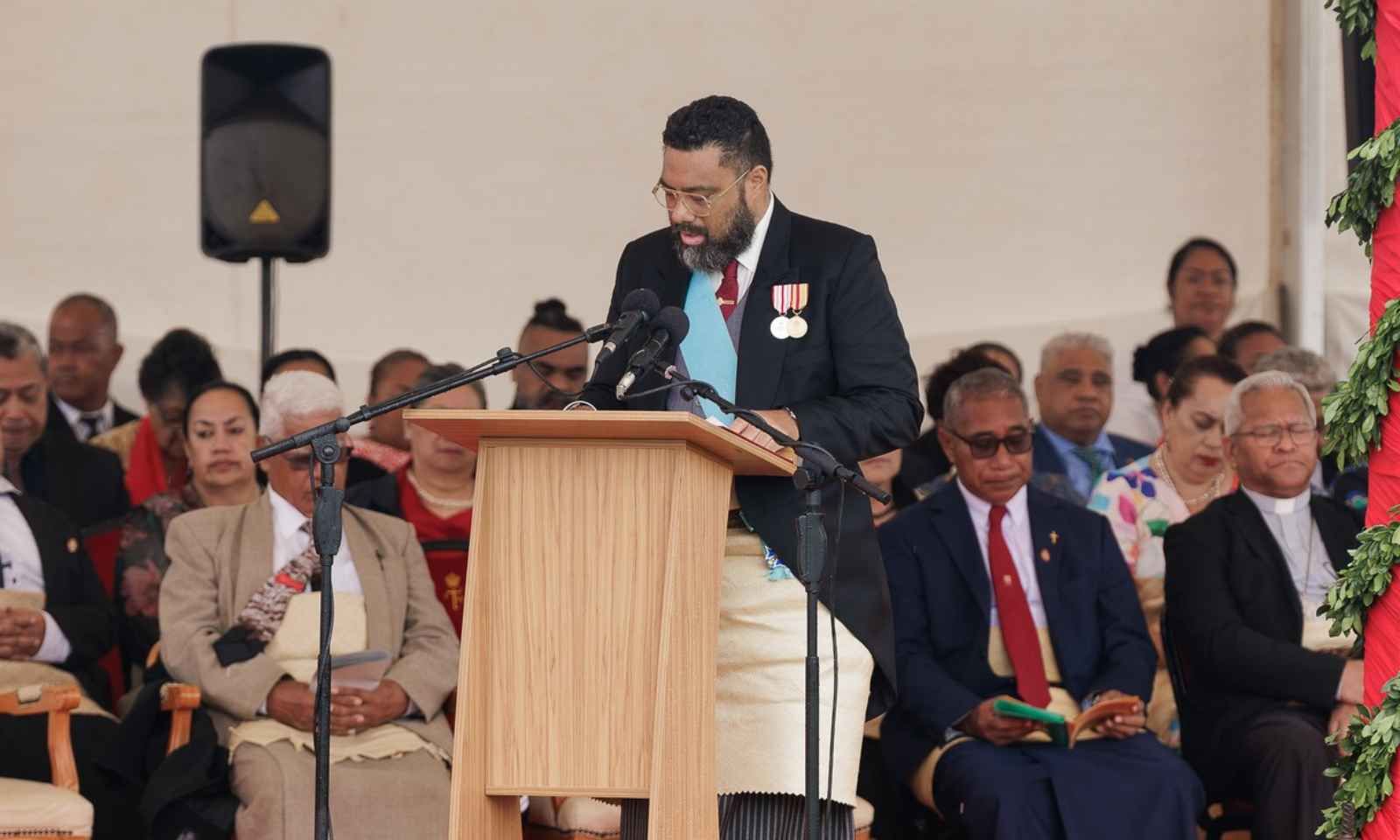
Lord Fakafanua speaking at the groundbreaking ceremony for the Kingdom's new Legislative Assembly. Photo/Supplied
Former Prime Minister and Speaker, Tu’ivakano, has served as a noble representative since 1996. He lost the office of Prime Minister to the late ‘Akilisi Pōhiva in the 2014 elections, after which he became Speaker of Parliament.
Dr Malakai Koloamatangi, a Tongan academic, tells PMN News he is surprised by nobles re-entering the electoral fray.
He explains that following the 2010 reforms, which aimed to make the Kingdom’s governance more democratic, the role of Prime Minister had generally been held by representatives of the people, with nobles stepping back from these positions.
“There was a sense that the nobles were withdrawing, particularly from the Prime Ministership and allowing the people’s representatives to take over, which is what happened,” Koloamatangi says.
“I’m not sure how this will be taken by the people. But I think there was a feeling that the era of Prime Ministership being held by nobles was over in Tonga.”
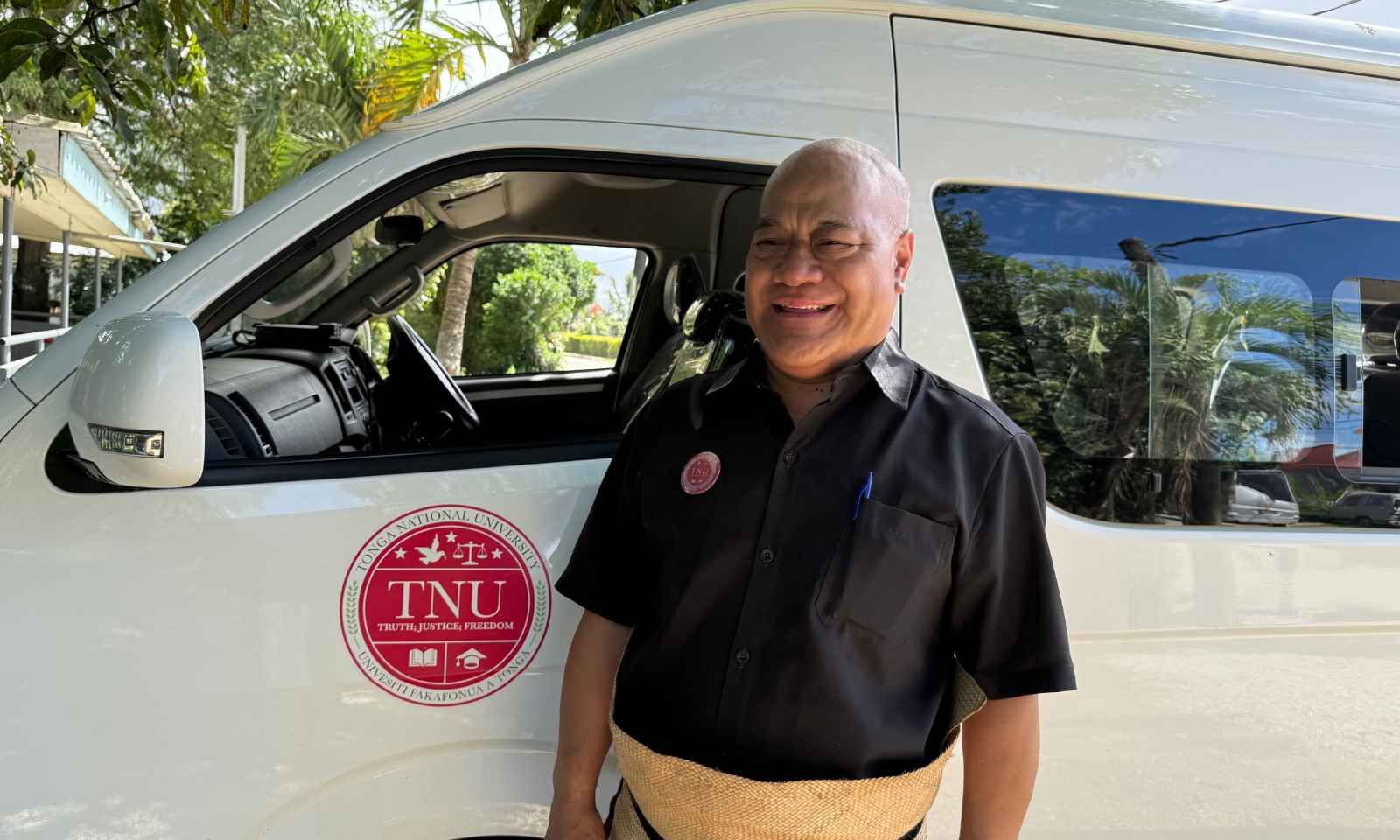
Dr Malakai Koloamatangi is currently a professor at Tonga National University. Photo/PMN News/Ala Vailala
Experts say ordinary Tongans are concerned about the nation’s fragile finances, with recent International Monetary Fund (IMF) warning about rising debt, climate risk, and a narrow base casting a long shadow over the election.
Some obersers state that many Tongans see the election as a power contest among nobles, but as a critical moment for choosing a leader who can navigate growing climate risks and disaster vulnerability.
The most recent noble to serve as Prime Minister was Hu’akavameiliku Siaosi Sovaleni, who was granted a chiefly title in 2021.
While Koloamatangi acknowledges the potential public hesitance around having several candidates increases options for voters.
Analysts also believe that many Tongans are prioritising everyday concerns like rising living costs, erratic fuel supplies, and stagnant wages are driving voter frustration, especially among younger and middle-income earners.
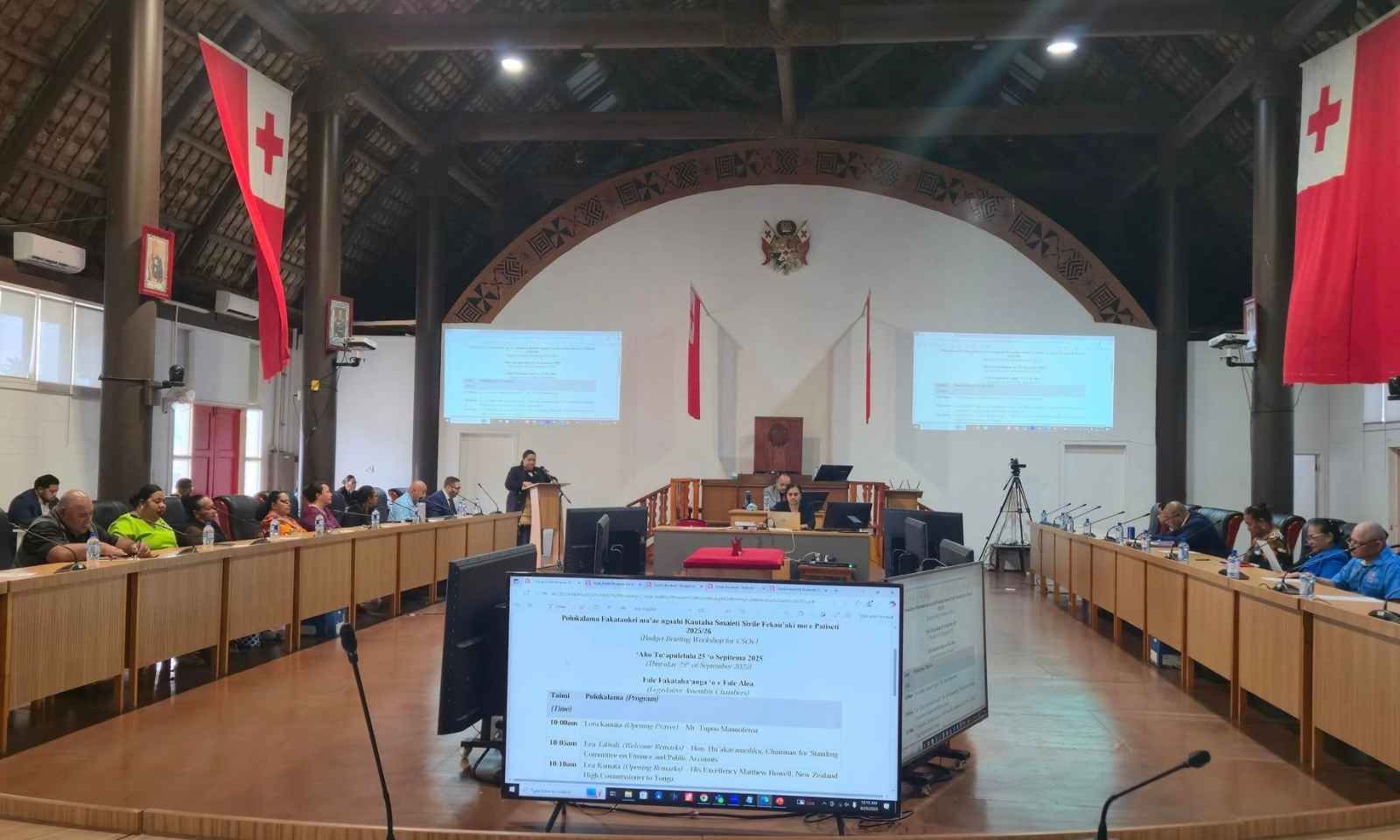
Tonga's Legislative Assembly where successful candidates from this year's election will select the new Prime Minister. Photo/Supplied
In Tonga, the Prime Minister is chosen by the 26-member Parliament, with both People’s Representatives and Noble Representatives casting votes to decide the leader.
“After elections, there will be several groups who will provide their candidate for the Prime Ministership - that divides a lot of people and quite bitterly as well sometimes.
“So I think if you have two or three, maybe four candidates for the Prime Ministership, it's certainly going to divide the parliament.
“What we need is a parliament of unity, not a parliament of division, because it'll lead to parliament not being able to do its work.”
PMN News Political Reporter 'Alakihihifo Vailala is in Nuku'alofa. PMN Coverage of Tonga Election 2025 is brought to you by the Pacific Business Trust - building strong futures, together.